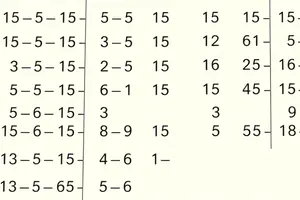Podcast
Questions and Answers
What is the primary goal when creating reasoning questions?
What is the primary goal when creating reasoning questions?
- To challenge critical thinking skills (correct)
- To test memorization abilities
- To assess basic comprehension
- To measure creative thinking
How can difficult reasoning questions be characterized?
How can difficult reasoning questions be characterized?
- They focus on rote memorization
- They require deep analysis and synthesis (correct)
- They test only surface-level understanding
- They are based on simple recall
What distinguishes a well-constructed reasoning question?
What distinguishes a well-constructed reasoning question?
- It relies on straightforward, easily answerable prompts
- It emphasizes memorization of facts and figures
- It presents complex scenarios that require logical reasoning (correct)
- It focuses on single-step problem-solving
What does numerical reasoning involve?
What does numerical reasoning involve?
How do people with strong numerical reasoning excel?
How do people with strong numerical reasoning excel?
What may someone with weaker numerical reasoning excel at?
What may someone with weaker numerical reasoning excel at?
What do people with strong numerical reasoning find interesting?
What do people with strong numerical reasoning find interesting?
What can someone with weaker numerical reasoning struggle with?
What can someone with weaker numerical reasoning struggle with?
Flashcards are hidden until you start studying
Study Notes
Reasoning Questions
- The primary goal when creating reasoning questions is to assess the ability to think logically and make sound judgments.
Characteristics of Difficult Reasoning Questions
- Difficult reasoning questions can be characterized by their complexity, ambiguity, and the need to make inferences.
Well-Constructed Reasoning Questions
- A well-constructed reasoning question is one that is clear, concise, and unambiguous, with a clear correct answer.
Numerical Reasoning
- Numerical reasoning involves the ability to understand and work with numbers, including the ability to perform calculations, understand numerical concepts, and make logical deductions from numerical data.
Strengths and Weaknesses in Numerical Reasoning
- People with strong numerical reasoning excel at tasks that require mathematical calculations, data analysis, and problem-solving.
- Someone with weaker numerical reasoning may excel at tasks that require creativity, verbal skills, and critical thinking.
- People with strong numerical reasoning find interesting topics that involve data analysis, patterns, and mathematical concepts.
- Someone with weaker numerical reasoning may struggle with tasks that require complex mathematical calculations, data interpretation, and logical reasoning.
Studying That Suits You
Use AI to generate personalized quizzes and flashcards to suit your learning preferences.




